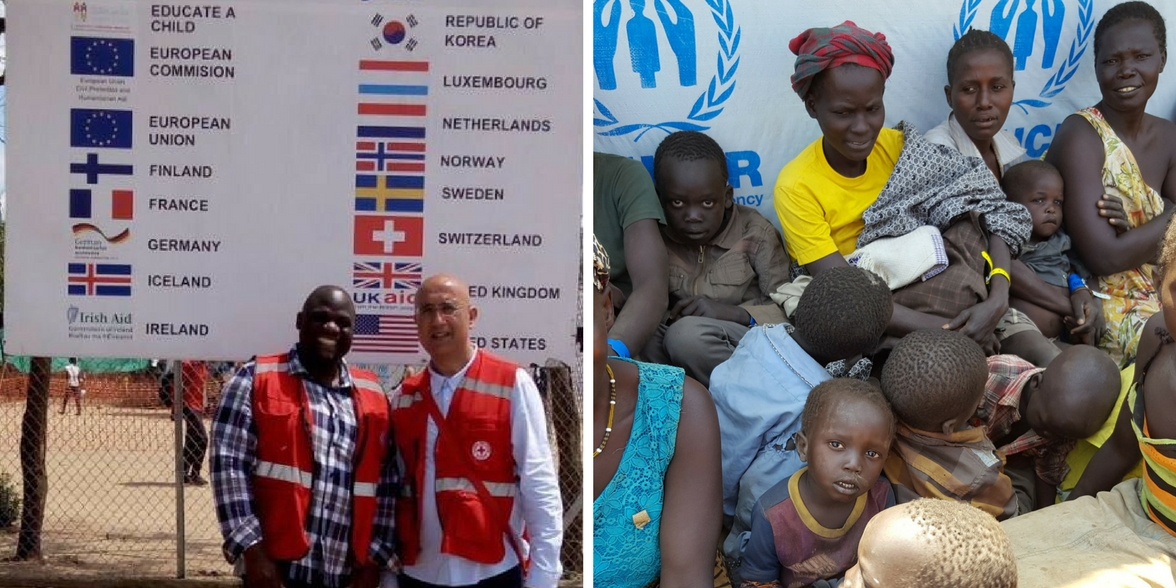Blog: World Humanitarian Day – To live is to choose
Date 20.08.2018

Yesterday (19 August) was World Humanitarian Day. In his spare time, Dr Sukhwinder Singh, Senior Lecturer in Social Work at University of Northampton, works as a Special Envoy to the Ugandan Red Cross. In this blog, he talks about the importance of humanitarian work in light of the recent death of United Nations Secretary-General Kofi Annan.
To live is to choose. But to choose well, you must know who you are and what you stand for, where you want to go and why you want to get there (Kofi Annan, 1938 -2018).
On the eve of World Humanitarian Day, we lost one of the greatest advocates of humanity whose warmth and humility was infectious and who inspired millions of humanitarians to work for a better social world. He was unrelenting in his pursuit of social justice and creating a new world order based around mutual and shared global responsibilities.
Under his leadership of the United Nations, he re-energised and re-focused its work and placed at the centre a focus on global human rights and collective action for alleviating human suffering and ensuring environmental sustainability. Indeed, he was the one of the first global Changemaker’s whose sense of purpose, vision and passion was grounded in a genuine desire to create a better and just world.
Changemaker practice in West Nile refugee camps
In many respects my Changemaker humanitarian social work in refugee camps in East Africa has been shaped by Kofi Annan’s sense of ethical leadership and ethics of ‘duty, care and collective responsibility.
Uganda now hosts 1.4 million refugees and the majority of these are children and women. They have left their homes and livelihoods in South Sudan and Congo because of violent conflict and experiences of escalating abuse. In Uganda unlike western Europe the arrival of unprecedented numbers of refugees has not been met with opposition, hostility and vilification. Instead they have been supported and provided with equal citizenship and social rights (Uganda Refugee Summit Report, 2017). Uganda is now considered an exemplar of good practice for its open-door refugee policy and focus on integration.
The current support offered to refugee communities is person centred and based on emergency care and social protection. It is kinship orientated and avoids an individualistic focus on ‘risk’ management. The emphasis is on meeting basic social needs, promoting human rights and developing shared responsibilities for daily living in the camps.
The West Nile refugee operations are now moving away from addressing immediate physiological needs to phase 2 where the focus is on ‘Recovery and Well-being’. As a member of the West Nile Refugee Consortium, the University of Northampton’s Faculty of Health and Society is exploring how it can co-develop with UK and Ugandan partners different strands of work which supports recovery and well-being.
The University’s expertise in waste management, public health, nursing and measuring social impact offers Changemaker students the opportunity to gain transferable global skills in transcultural practice and frugal healthcare interventions. These student Changemaker experiences have the potential to develop relational attributes and awareness of ‘self’ as the principal resource.
As a social worker simply working in these contexts does not in itself make my work humanitarian. What makes it humanitarian social work are the values and ethical standpoints which shape the interventions; the strengths-based practice models which determine the contours of your work; desired outcomes which enable opportunities for growth and development and the existing humanitarian partners on the ground, like the Uganda Red Cross Society, who you co-align and co-develop your shared work with.
These different layers help to construct and crystalise a form of social work practice which goes beyond individualistic casework and into the realms of radical and humanistic practice wrapped around social agency and self-actualisation.
This is what makes it humanitarian and globally facing social work practice and in many respects it captures the spirit of Annan’s lifetime work, which was centred on building a better and brighter future for all communities to live sustainable and peaceful lives enshrined by human rights and equality.